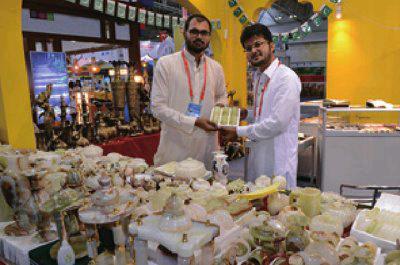Piloting the Future
2015-06-05ByBaiShi
By+Bai+Shi
On May 19, 7 tons of fruits from Taiwan worth $60,000 arrived in Pingtan port of Fujian Province, becoming the first shipment of Taiwan fruits to arrive at the China (Fujian) Pilot Free Trade Zone(FTZ). The whole inspection and quarantine process for the delivery took less than two hours.
Pingtan is the nearest port to Taiwan, and the passage between the two locations is considered a golden sea route for transporting fresh fruits from Taiwan to the mainland market. “If Taiwan farmers pick fruits in the morning, Shanghai customers can buy those in the market the next day,”said Chen Mubin, a trader who purchased the batch of fruit.
Since the Fujian FTZ was officially launched on April 21, the Fujian FTZ administration has taken a series of measures to simplify customs procedures. The tedious work of registering at commerce, inspection and quarantine, and tax authorities has been replaced by the simplicity of filling out an electronic application form online.
Having benefited from the FTZ policies, the Pingtan port has introduced a series of measures, said Han Jiacai, an official from local inspection and quarantine authorities. Take fruits for an example. According to Han, they adopt a method combining sourceof-origin management and on-the-spot checking. They will release the goods which pass the on-the-spot checks, while sampling checks will be applied to potentially problematic merchandise. The method can ensure the quality and safety of the fruits and raise the efficiency of customs clearance.
b
The conveniences brought by the FTZ in the southeast coastal province of Fujian have aroused the interest of its Southeast Asian neighbors along the 21st-Century Maritime Silk Road. At the first 21st-Century Maritime Silk Road Exposition and an Asian Cooperation Dialogue forum, held simultaneously in Fuzhou, capital of Fujian, from May 18 to 21, Southeast Asian participants displayed keen interest in the Belt and Road Initiative and the Fujian FTZ.
Building an economic belt along the Silk Road should not only focus on traditional forms of connectivity but also incorporate modern and forward-looking modes of connectivity, including air connectivity, financial connectivity and e-commerce connectivity, Loh Ka Leung, Ambassador of Singapore to China, said in his address at the Asian Cooperation Dialogue, an intergovernmental dialogue and cooperation mechanism that focuses on promoting Asian cooperation.
“We could complement and support each other in building an interconnected region. We should provide more opportunities to further discuss our common goals in connectivity and deepen our cooperation to create a situation that benefits everyone involved,” said Sansanee Sahussarungsi, Deputy Director General of the Department of International Economic Affairs, Thailands Ministry of Foreign Affairs, at the forum.
“The newly established FTZ in Fujian Province will offer us good opportunities and favorable conditions to expand our business in China,” said Alex Ng, Director of Department for Small Medium Enterprises, Malaysian Chamber of Commerce and Industry in China, in an interview with Beijing Review at the forum.
Serving to promote commerce between Malaysian and Chinese enterprises, Ng often travels to Beijing and south Chinas Guangdong Province. Now, the establishment of Fujians pilot FTZ provides him with a new option on the business trip schedule to seek opportunities in China.
“Our clients are mostly small and mediumsized enterprises in Malaysia. They hope to export their featured products to the Chinese market, but they are not experienced in the export business. The simplified procedures for trading in the Fujian FTZ will definitely reduce their costs with regard to exporting products to the Chinese market and boosting trade between Malaysia and China,” Ng said.
Chen, the mainland fruit trader who has already got himself a sweet deal, may have some experience to share with Ngs clients. Chen plans to take Pingtan as the port to import goods from Taiwan. On May 29, the second shipment of Taiwan fruits will arrive there.
